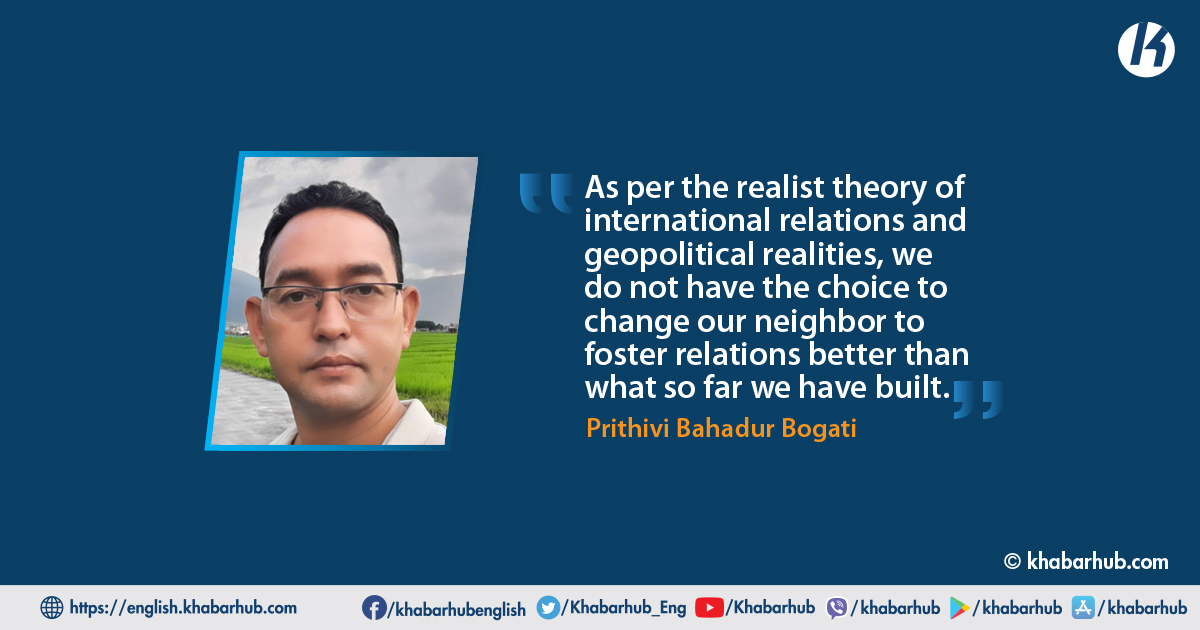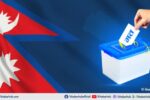India is Nepal’s immediate and one of the most essential neighbors for historical, economic, and geopolitical reasons.
The geography of Nepal is very important to India. The Himalayan range of the northern side of Nepal has become the barrier against the penetrator.
It has made safe to Nepal and also considered equally safe to India. Because of the geopolitical fact, former Prime Minister of India, Jawaharlal Nehru stated in 1959, ‘Nepal’s frontiers are India’s frontiers’ (Mankekar, 1974, p. 14).
The high range Himalayas has become a defense for Nepal in the north and India has seen the Himalayas as a barrier to Chinese influences as well as their protection too.
Because of its geography, Nepal remained independent and sovereign even during British colonialism in South Asia.
In the changed geopolitical and strategic situation, geography exerts the most complicated and, complex influences on the conception and formulation of Nepal’s national security system or policy.
Role of EPG in Nepal- India Relations
Nepal and India have a long history. Economically, socially, culturally, and geographically both countries are bound together from the ancient period.
Comparatively, Nepal is more dependent on India in various relations, especially in the area of economic concern. In the words of G.P. Koirala, ‘Because of geography, social and cultural affinities, as well as industry and commerce, it is clear that our relations with India must be more practical.
We are not tilting towards India. Rather, we have only underlined the reality of our interdependent relationship with India’ (Naidu, 2017, p. 47).
A powerful country always wants to bring under its security umbrella to the smaller neighboring countries. In the changing international politics, no country endeavors to be bound by a treaty.
As per the realist theory of international relations and geopolitical realities, we do not have the choice to change our neighbor to foster relations better than what so far we have built.
Therefore, both countries felt to move forward reviewing the bilateral treaties and agreements for peace, progress and prosperity according to the national, international and global scenario. In this way, the concept of EPG was originated.
The formation of Nepal-India EPG is based on the assumption that the bilateral agreements linked between the two countries since the 1950s need to be replaced, updated, or scraped and on their relevance and irrelevance in a new context.
An agreement on establishing the EPG in 2011, and the two countries agreed to prepare its terms of reference in 2014 when Indian External Affairs Minister Sushma Swaraj was in Kathmandu to attend a Nepal-India Joint Commission meeting’ (My Republica, 5 April 2017).
The Formation of Eminent Persons’ Group
While Former Foreign Minister, Bhekh Bahadur Thapa was the Coordinator from the Nepali side, Former Chief Commissioner of Commission for the Investigation of Abuse of Authority, Surya Nath Upadhyaya; Former Law Minister and former Ambassador to India, Nilamber Acharya; and CPN-UML leader Dr. Rajan Bhatttarai were the members.
Likewise, the former Chief Minister of Uttarakhand, Bhagat Singh Koshyari represented India as the Coordinator of the Group, former Indian Envoy to Nepal, Jayanta Prasad; Former vice-chancellor of Sikkim University, Mahendra P. Lama, and Senior Fellow, Vivekananda International Foundation, BC Upreti were the members.
The EPG meeting had two years tenure to be held every three months on a rotational basis. During India’s Prime Minister Narendra Modi’s visit on 2 July 2014, Nepal and India agreed on forming an EPG comprising four members, each with a tenure of two years (english.onlinekhabar.com/. 4 July 2016). Nine meetings were held during the two years.
The Significance
The EPG was equipped to suggest both governments on fixing the numbers of entry and exit points at the border so that citizens from both sides would not be affected.
Along with that, EPG is also set to suggest that both governments check and maintain records of people traveling to both sides and make valid identity cards mandatory. Nepal-India Eminent Persons’ Group (EPG) proposed a citizen ID card for border management.
The time and situation when the treaty was signed are not the same now. Considering the global scenario, international laws, treaties, and agreements, the Peace and Friendship Treaty 1950 should be reanalyzed and reviewed in the present context, or else misunderstanding between two countries might resurface time and again.
At least the 1950 treaty issues are discussed on the table in the clause-wise direction. The people of Nepal have aroused doubt and suspicion between the two governments, but the EPG has built up trust among the people but at least EPG members have assured that the recommendation of EPG would not be materialized if won’t be implemented.
As per the realist theory of international relations and geopolitical realities, we do not have the choice to change our neighbor to foster relations better than what so far we have built.
Because geographically we are attached unless the sound relationship is developed development of any country is hard.
The treaties between the two countries should be reviewed and revised with the spirit of cooperation and coordination instead than with control. Sweeping the problems under the carpet is not the long-lasting way to resolve the issue.
It has been concluded that a good report of EPG is not only the solution of the issues, instead, but the implication part is also most important to settle the disputes and to address the unequal bilateral relationship between both countries.
Both groups have revealed that their role is just to give suggestions, but the implementation part belongs to their respective governments.
The joint report, which is going to be submitted by the two groups to their respective governments, will be applied or not, which determines the value/meaning of the EPG.
The time and situation when the treaty was signed are not the same now. Considering the global scenario, international laws, treaties, and agreements, the Peace and Friendship Treaty 1950 should be reanalyzed and reviewed in the present context, or else misunderstanding between two countries might resurface time and again.
(Prithivi Bahadur Bogati is a Ph.D. Scholar at the Department of Political Science, Tribhuvan University, Kathmandu, Nepal)
References
https://myrepublica.nagariknetwork.com/news/9th-epg-meeting-begins/
Mankekar, D. (1974). DEFENCE SECURITY OF SOUTH ASIA. International Journal of Politics, 4(3), 11-25. Retrieved June 19, 2021, from http://www.jstor.org/stable/27868801
Naidu, Shusil, K. (ed. 2017). Nepal- India Open Border’s Security and Challenges. Delhi: Gaurav Book Centre Pvt. Ltd.









Comment